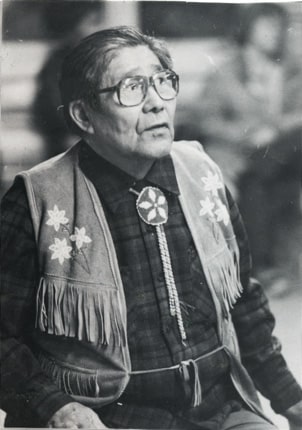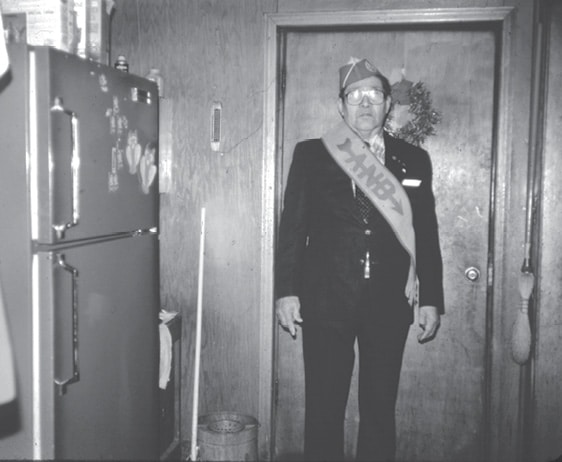
The Walter Charley Memorial Scholarship program assists Ahtna shareholders with meeting their educational goals by funding full and part-time students. Yet, who was Walter Charley? And why is Ahtna’s scholarship program named after him?
Walter Charley was a self-made man who was born on February 28, 1908 at Wood Camp, four miles downriver from Copper Center. A well-known driving force in the Alaska Native Claims Settlement Act, he died on October 22, 1992 – at the age of 84.
An incredible natural leader, he was brought up by his aunt and uncle after his family died from the 1918 Flu Epidemic. He came from a long line of leaders and chiefs that went back four or more generations.
A hard worker, Walter Charley was directly involved in all of Alaska’s modern building projects. In his early years, he worked as a section hand on the Copper River and Northwestern Railroad at Strelna during the late 1920s and 1930s. Later, he was employed by the Alaska Road Commission during the surveying and construction of the Glenn Highway, beginning in 1941.
He worked as an equipment operator for the Department of Highways until his retirement in the 1970s. Then he worked as a lineman, joining Local 1547. In the mid-1970s he worked on the construction of the Trans-Alaska Pipeline.
Walter Charley was heavily involved in many other organizations and projects. He was one of the first Ahtna Natives to join the Alaska Native Brotherhood in the early 1950s. He was a former commissioner of Wrangell-St. Elias National Park. He served as president of Chitina Village Corporation and vice president of the Aboriginal Senior Citizens of Alaska. He was the honorary elder board member of the Copper River Native Association (CRNA).
And, he was former president of Ahtna Construction.
A strong and vocal supporter of Native subsistence rights, Walter Charley became a member of the Rural Alaska Resources Association (RARA) Board in 1979 and traveled to many parts of the state to support the subsistence lifestyle. He was also an official honorary elder on the Rural Alaska Community Action Program (RurAL CAP) Village Participation Conference Planning Committee.

He was known throughout Alaska. A longtime and influential member of the Alaska Federation of Natives (AFN), Walter Charley was named the AFN Citizen of the Year in 1988.
Yet, more than all those honors and all those manly occupations, he was someone who was unafraid to speak up. He was friendly and open – yet fearlessly passionate about righting wrongs when he saw something that shouldn’t be happening.
Walter Charley moved easily between the Native and white cultures. He had a good sense of humor, high personal standards and a strong affection for his family.
A lucid speaker, Walter Charley often spoke forcefully on the same repeated themes: taking responsibility for yourself; working hard; overcoming the problems of prejudice – and living a sober life.
He frequently told anecdotes about his own past and the cultural history of the Ahtna people. Yet he was also especially concerned with encouraging young people to face the future squarely without fear.
It’s hard to imagine a better person to name a scholarship after.
This story was published as part of an ongoing, original series of interviews and photographs from the Copper River Country Journal (www.countryjournal2020.com), celebrating Native Heritage Month, November 2020.
